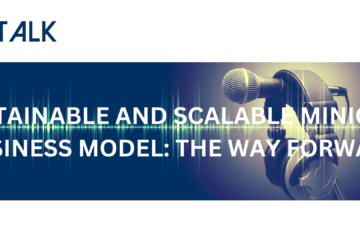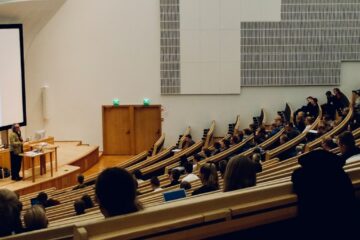Registration open
Powering Africa Through Regulation
The Power Sector Regulation in Africa course provides a comprehensive overview and a sound understanding of the fundamentals of power sector regulation in the diverse contexts of African countries. The course goes far beyond “having an informed opinion” on regulatory issues. It is designed with the practical objective of “learning the trade” of regulatory practice, at a level that can be achieved throughout the course. The course will provide a solid platform to build later with specialised training on different topics.
The course consists of two parts: the first is online; the second is in person and lasts one week. In the online and main part of the course, participants will learn the regulatory principles that apply to the several activities involved in the delivery and utilisation of electricity and their implementation in the African power sector context. The course will end with an optional in-person week devoted to the analysis of practical cases of application of the material covered during the online part of the course.
What you will learn:
- Core principles of power sector regulation, tailored to the African context
- Electricity transmission and distribution
- Large-scale generation of electricity: From centralized planning to wholesale markets
- Current policy issues in the development of the energy sector in Africa
An introduction to the course by the Course Director, Prof. Ignacio Pérez-Arriaga:

The objective of this course on “Power Sector Regulation in Africa” is to provide a comprehensive overview and a sound understanding of the fundamentals of power sector regulation in the diverse contexts of African countries. The course goes far beyond “having an informed opinion” on regulatory issues. It is designed with the practical objective of “learning the trade” of regulatory practice, at a level that can be achieved over the duration of the course. The course will provide a solid platform on which to build later with specialised training on different topics. The power sector in many African countries presents unique challenges that require distinctive solutions, not by copying and pasting international best practices, but by creatively adapting them or inventing new ones, always starting from the basic principles of economic regulation and an understanding of the engineering aspects of this complex industry. This is the mindset the course seeks to stimulate in the participants.
A lesson comprises:
An introductory (video or podcast) with the justification of the relevance of the topic, a brief overview of its content and the presentation of the objectives to be achieved by the participants by the end of the lesson.
Several video lectures of about 10 minutes in duration. Several of the videos will include polls and questions which participants can engage in. All video lectures have transcripts available in PDF, with subtitles and transcripts in other languages. The main language of the course is English.
Required readings will be provided for each lesson. These are foundational to understanding the topic concepts in each lesson and complement the video lectures.
Optional readings (and links to relevant podcasts and/or videos) are provided for participants who would wish to learn more on the theme of the Lesson.
Discussions forum typically involving participants responding to a question posed in the discussion forum within the e-learning platform. The forums also provide participants with the opportunity to engage with each other’s contributions.
Live classes are held at every week and will comprise the live interactions with the course instructor to answer questions posed by course participants or clarify on aspects of the course content.
A self-assessment test is provided at the end of each lesson with multiple choice and ‘true/false’ questions. An explanation for each answer is provided. A minimum mark must be achieved to pass the test, but there is no limit to the number of times a participant can take it.
Participants may undertake an individual Course Project, which will be based on a topic to be provided by the course instructor.
This course is designed for professionals working in the multiple entities related to the power sector, which includes regulatory authorities, ministries and governmental agencies, power utilities, academia, investors, development organisations, and others who wish to gain an in-depth and practical understanding of the regulation of the power sector in Africa.
Course Director: Ignacio Pérez-Arriaga (African School of Regulation).
Course Instructors:
- Andrés González (Waya Energy and MIT-Comillas Universal Energy Access Lab)
- Carol Ofafa (African School of Regulation)
- Chris Flavin (Gridworks)
- Christian de Gromard (former Energy Advisor, French Development Agency, AFD)
- Collin Gumbu and Patrick Tonui (Global Off-Grid Lighting Association – GOGLA)
- Eng. Nickson Bukachi Ongeri (Strathmore University)
- Fenwicks Musonye (Energy & Petroleum Regulatory Authority, Kenya)
- Geoffrey Mabea (Energy Regulators Association of East Africa)
- Henry Odedeh (Kenya Electricity Transmission Company, KETRACO)
- Irene Calvé (Sustainable Energy for All)
- José Guerra (Smarteec)
- Keno Shiferaw, (African School of Regulation)
- Martha Wakoli (CLASP)
- Mohamed El Abbas (Comillas University)
- Mohamed Fayed Hendam (EgyptERA)
- Nnaemeka Ewelukwa (Nigerian Bulk Electricity Trading Plc)
- Obindah Gershon (Centre for Economic Policy & Development Research (CEPDeR), Covenant University
- Pablo Dueñas (Institute of Research in Technology, Comillas University)
- Peter Twesigye (Power Futures Lab/University of Cape Town)
- Rebecca Rhodes (GOGLA)
- Rita Madeira (International Energy Agency, IEA)
- Rose Mutiso (Energy for Growth)
- Ruth Kimani (CLASP)
- Ryan Ketchum (Hunton Andrews Kurth)
- Santos Díaz Pastor (Institute for Research in Technology, Comillas University)
- Sergio Ascari (Florence School of Regulation).
- Stephen Lee (Massachusetts Institute of Technology, Center for Energy and Environmental Policy Research)
- Sumaya Mohamed (Power Africa Empower East and Central Africa, EECA; RTI International)
1) Ugunduzi (Discovery) Level: 3-4 hours per week, devoted to learning and understanding the course content by watching the video lectures, reading the required texts and take the weekly test.
2) Uchunguzi (Exploration) Level: 4-6 hours per week, corresponding to adding to the Discovery level the participation in the discussion forums and/or live classes.
3) Ustadi (Proficiency) Level: 6-8 hours per week, corresponding to adding to the Exploration level the delivery of a Course Project.
Fees:
- Online: $1,450
- Presential: $950
- Students (Discount for online only): $400
Discounts:
- Early bird: 10 % reduction for participants who complete registration by January 16, 2026 (24:00).
- Group Offer: 10 % reduction for organisations registering five or more participants together in a single coordinated submission by March 06, 2026 (24:00).
- Alumnus:10 % reduction for alumni of ASR courses; valid until March 06, 2026 (24:00).
All payments must be completed by March 13th, 2026.
Cancellation:
The paid registration fee is non-refundable. However, registrant substitution may be made up to 20 days before the course’s start date.
Students’ enrolment:
*Please send your certificate of current studies with the stamp of your university to ASR Course Support: support@africanschoolregulation.org.
Your studies’ start and end dates should also be clearly mentioned in the document. Please make sure that your period of studies fully covers the duration of the training course.
ASR Scholarship
The African School of Regulation is offering 10 scholarships to early- and mid-career African energy professionals to participate in the Power Sector Regulation in Africa course.
The scholarship covers the online component only. Eligible candidates working in Africa’s energy sector are encouraged to apply.
- 🗓 Deadline: 15 February 2026 (midnight GMT)
- 👉 Apply here: Link to apply
- Download the scholarship information: Link to download
Download the course resources needed:
– Course Program
– Regulation of the African Power sector course – An introduction by Ignacio Pérez-Arriaga.
- How do I make payment for the course?
Payments can be made securely online via credit/debit card. Detailed instructions will be provided once your application is accepted. - Are scholarships available?
Yes! Limited scholarships are offered to outstanding applicants. More information will be provided in due time. - When will I receive confirmation after applying?
Applicants typically receive a response within 2–3 days of submission. - Is there an information session before the course starts?
Yes. We host a virtual info session in February to answer questions about the course structure, schedule, and expectations. Details will be shared. - What is the course format and duration?
The program consists of 12 weeks online learning followed by a 1-week in-person residential session in Accra, Ghana. This blended approach ensures flexibility and practical engagement. - Do I need to pay for the in-person session now?
No. It can be done later in the course. Deadlines will be communicated. - Can I get a written letter from ASR to seek funding from my institution?
Yes. Please email us with your request and specify who the letter should be addressed to.

